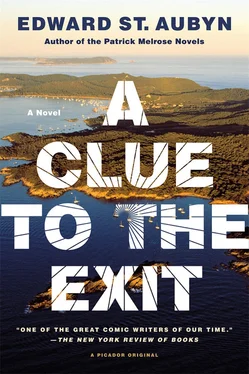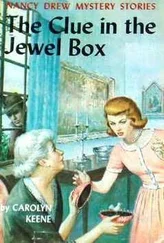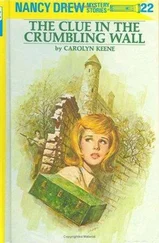On Patrick’s first evening as a student, the warden of his college welcomed the new undergraduates with a speech. He praised the geographical position of Oxford. ‘We’re very well placed to go to London,’ he said. And Heathrow, thought Patrick, dreaming as usual of New York. ‘And Cambridge,’ said the warden, ‘which, of the newer universities, is, in my opinion, quite the best.’ That’s donnish humour, thought Patrick, deciding to take immediate advantage of London’s proximity. The warden’s sly, pedantic chuckle seemed to reverberate among the bookshops and gargoyles that guarded the taxi rank; his gurgling complacencies soaked the golden buildings until they split open like soggy trifle. Perhaps they had once been intended for something serious, but there had been too many puns, too many Latin tags, too many acrostics, too many fiendish crossword puzzles, too many witty misquotations and too many sly chuckles for them to do anything but rot, however noble and solid they might look to the winking eye of a tourist’s camera.
Returning to Oxford after ten years, he found that his ear no longer picked up this paranoid frequency. He was a sufficiently different person to return with some neutrality; and, besides, he was no longer cultivating that narrative sense of self which collects the resonances of earlier experiences. The buildings seemed to have achieved that ‘ordinary unhappiness’ which Freud promised his star patients.
Patrick’s attention drifted among the various incompatible approaches to consciousness he had been exposed to over the last three days. He hadn’t yet organized his memories of the conference into anecdote and he knew that unless he gave them that structure they would slip down the nearest drain. Once he had described what had happened, on the other hand, the story would gradually colonize the experience, the alternative details would disappear and only those that served the story would be allowed to survive. The experience was already shaped by another story about who he was, but only the feedback loop of description could give the experience enough solidity to survive in active memory.
It was tempting to picture an ascending hierarchy of complexity, with consciousness arising at the point where the feedback loop occurred, but this just pushed the problem back, leaving the loop unexplained.
The habit of asking ‘why?’ and ‘how?’ again and again was like living with a four-year-old child. Patrick was exasperated by it and sometimes wanted to say, as he might at the end of a long gauntlet of monotonous interrogation, ‘Well, that’s just how it is.’ At other times, or sometimes at the same time, he felt that the measure of his strength was his ability to inhabit this vertigo of enquiry, to meet the eyeless gaze of the incomprehensible. Perhaps these two positions were not so different.
Patrick sighed and looked out of the unrevealing window. It was impossible for him to concentrate on the question of consciousness for long, impossible to turn away from it for any longer. At the conference, Galen Strawson had shown him Michael Frayn’s parody of Wittgenstein about the man who doesn’t know that there is fog on the road unless there is a sign saying ‘fog’. ‘This is the man who philosophers are always telling us about, the man who goes on asking for explanations when everything has been explained.’ After going through some moves typical of a certain kind of analytic philosophy, this enquiring character asks, ‘But how do I know that the expression “fog”, where “fog” means “fog”, means “fog”, where “fog” means “fog”?’ Someone suggests he is in a mental fog. ‘Now one asks: “But how do you know it’s a mental fog you’re in?”’ He, in turn, needs an illuminated sign saying ‘mental fog’. The author concludes: ‘If a lion could speak, it would not understand itself.’
If British Rail had been thoughtful enough to put a sign on the station platform, would it have said ‘mental fog’ or ‘physical fog’, and who would have been able to read it anyway? Perhaps in one of those fits of self-improvement which usually gave birth to a ticket with a name too complicated to request, they might have put ‘metaphorical fog’ or even, throwing caution to the winds, ‘metaphysical fog’. What difference did it make?
Patrick could see Crystal reflected in the window. She seemed to have become inaccessible, and he felt his desire for her checked by the opaque surface which covered her disappearance. As to Jean-Paul, was it wise to interrupt him while he was reading a big shiny French book called Le Mythe du sens? Patrick was thrown wearily back onto his own thoughts. What kept him looking for clues in a sometimes infuriatingly abstract, technical and circular debate was the allergic relationship he had with so many of his own mental habits. He had to know whether there was anything free in the wretched drama of consciousness. What else was there in the end? A man’s biography was the history of what he had given his attention to, and so it seemed worth knowing what attention was, and how it related to other types of knowledge.
‘Oh, God,’ muttered Patrick. He felt the constant longing to escape his own habits of expression, and then watched the tyranny of his taste, like a bullet in the heart of a skylark, reintroduce him to the inevitability of certain rhythms, certain symmetries, certain tricks of argument. Faced with this curvature of his imagination, he experienced a fresh outbreak of self-allergy. Maybe things hadn’t changed that much since his student days.
All the agony about how consciousness related to the simultaneous firing of neurons seemed to Crystal relatively trivial. The correlations would become more compelling, there would be ever more bizarre brain lesions for the angel of empathy, Oliver Sacks, to describe. But even if the map came to match the territory in the spookiest possible way, there would still be a few hippies, philosophers and romantics who would insist that there was a real city under all that paper, a city of experience, lost in translation. The mapmakers would reply that there was indeed a city, the city described by Francis Crick where, ‘You, your joys and sorrows, your memories and ambitions, your sense of personal identity and free will, are in fact no more than the behaviour of a vast assembly of nerve cells and their associated molecules.’ Everybody would be back where they started but with more suggestive details. What was neuroscience worth in the consciousness debate when consciousness had its life in experience and she could never experience her neurons firing?
She was sometimes tempted to think that consciousness was the fundamental constant which physics had forgotten. The notion that the ‘singularity’ was a form of consciousness seemed rather less mystical, on balance, than the idea that the universe was born fifteen billion years ago out of nothing. Followed a few billions of years later by life, with consciousness arriving only just before the end of the party, struggling up the stairs against the downpour of entropy and species extinction, an afterthought resulting from activities in the central nervous system. ‘A likely story,’ as Peter was, or had been, fond of saying.
What appeared to be the tough existential decision to face up to our famous insignificance and isolation, a refusal to grab at the flimsy consolations of a purposeful cosmology, turned out to be a human monopoly of creative power. The universe, life and consciousness were allowed to lurch stupidly into existence, but for true creativity we must look to the Sistine Chapel, or the combustion engine. The Hubble telescope was a miracle for admiring an accident. No flies on the brave boys and girls, in white coats and black overcoats, who had banished superstition from their laboratories and cafes.
Читать дальше












